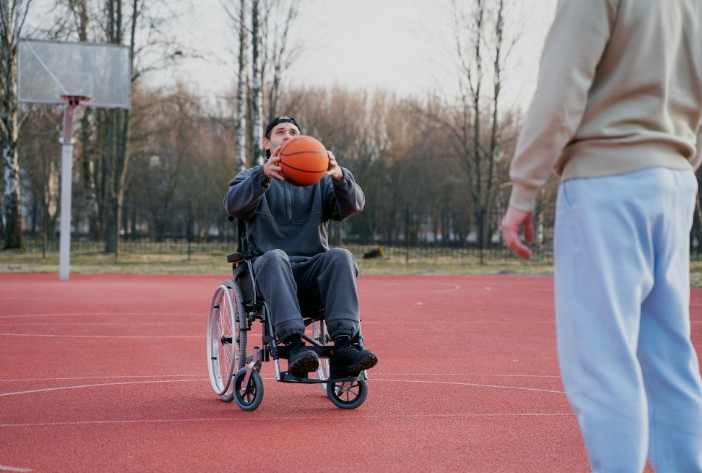Maintaining physical activity is paramount for one’s overall health and well-being. For individuals with mobility limitations who rely on wheelchairs, incorporating regular exercise into their routine may appear daunting. The positive aspect is that an active lifestyle is highly attainable for wheelchair users. By implementing adaptive exercise programs, engaging in sports, and enhancing daily mobility, individuals who use wheelchairs can effectively maintain their fitness and health state.
Adaptive Exercise Routines
Regular physical activity offers numerous advantages such as enhancing strength, promoting cardiovascular well-being, and uplifting mood. People who use wheelchairs can customize their exercise routines to concentrate on upper-body strength training. Of course, having a well-fitted and reliable wheelchair is essential for providing comfort and safety while exercising. Investing in a quality chair like the Jazzy EVO 614 HD Power Wheelchair that meets individual needs will provide the freedom to pursue an active lifestyle.
Various equipment like resistance bands, lightweight dumbbells, and adaptable chair gym machines enable a comprehensive workout. A professional trainer can provide guidance in modifying exercises and offer assistance with equipment to create accessible routines.
Strength training for wheelchair users is crucial as it aids in muscle development, enhances endurance, and reduces the risk of overuse injuries. Cardiovascular benefits can be obtained through heart rate-elevating workouts. Maintain consistency by aiming for at least 30 minutes of exercise on most days of the week. Don’t forget to stretch before and after workouts. By tailoring an adaptive exercise plan to individual capabilities, wheelchair users can effectively improve strength and overall fitness levels.
Participating In Sports
Another excellent method for wheelchair users to maintain an active lifestyle is through engaging in adaptive sports. There are various chances to participate in sports such as basketball, tennis, racing, and numerous others. Wheelchair basketball and rugby are team sports that offer both cardiovascular exercise and exhilarating gameplay. Individual sports like wheelchair racing and tennis contribute to building endurance. Sports not only provide physical benefits but also foster social connections and well-being.
The unity of a team fosters motivation and responsibility. Collaborative training sessions and matches cultivate bonds through shared passions. Wheelchair sports leagues provide a sense of belonging for those who appreciate competition, helping to normalize disabilities and boost self-assurance. Engaging in recreational activities not only makes exercise routines more enjoyable but also offers entertainment, challenges, and happiness. With the appropriate mindset and equipment, individuals using wheelchairs can explore fulfilling sports experiences.
Maintaining Everyday Mobility
Leading an active lifestyle depends on optimizing mobility in daily routines. Wheelchair users can benefit from various tools and techniques to navigate their homes safely. Incorporating ramps, lifts, and assistance devices facilitates movement across uneven thresholds. Enhancing accessibility can be achieved by lowering kitchen cabinets, expanding doorways, and ensuring clutter-free spaces.
Smart home technology, such as video doorbells and voice controls, helps reduce unnecessary movement. Vehicles can be customized with ramps or lift systems to aid in entering and exiting. Driving aids, like hand controls, provide increased flexibility and independence. Prioritize accessibility, both at home and in the community, to ensure inclusivity for all individuals.
Incorporating daily stretching into your routine is a simple habit that promotes joint health and flexibility. To prevent strain or injury, maintain proper wheelchair positioning and practice ergonomic techniques. Regular maintenance of wheelchairs ensures their proper functionality. Additionally, diet and nutrition play a substantial role in sustaining energy levels. By making lifestyle adaptations, wheelchair users can optimize their mobility to successfully accomplish daily tasks.
Conclusion
Living an active life with a mobility disability presents distinctive obstacles. Nevertheless, by taking a proactive approach that emphasizes capabilities rather than limitations, people who use wheelchairs can maintain their fitness. Adaptive exercise offers both physical and mental advantages, while engaging in sports fosters social connections and aligns with personal interests. Prioritizing accessibility at home and in the community promotes greater independence. With numerous options available, wheelchair users can customize an active lifestyle that suits their abilities and aspirations.
Read Also:






